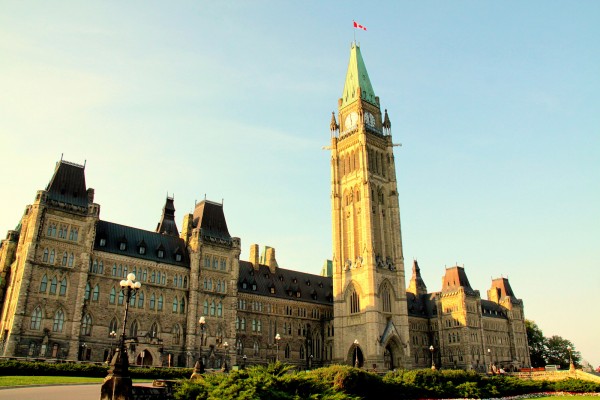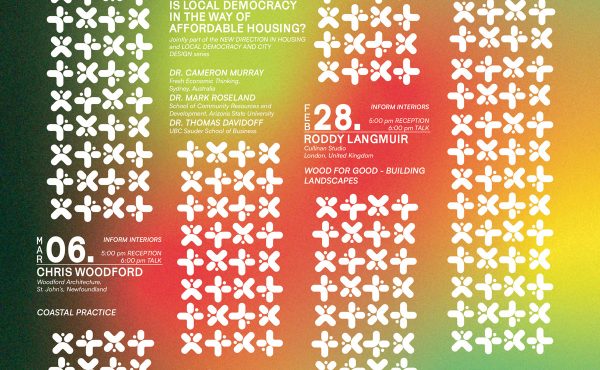
Richard Florida called last week for President Obama to create a national US department of cities. When the author of The Rise of the Creative Class and head of the Martin Prosperity Institute at the University of Toronto wrote that such a department would help build a “lasting urban legacy” in America, it created some buzz.
As much as the United States needs this, here’s the thing — Canada needs it even more. We should have a new national ministry of urban affairs, as we had in the 1970s. Or perhaps we’re ready to call it a ministry of cities.
In the US, there has been a federal role in cities since the Clinton years, and they already have a Department of Housing and Urban Development (HUD) — something Canada doesn’t have. Florida isn’t the first to suggest the Americans need something more comprehensive (cities are more than housing and development), and he may not be the last — but as President Obama’s second term starts, this may be the best chance the Americans have to make it a reality.
The UK essentially has such a department, and is going further, devolving key powers from Westminster to cities. Australia has a “Major Cities Unit,” that among other things produces an impressive State of Cities analysis. Both realize the competitive importance of city-regions.
Florida’s suggestion has actually been characterized as “lefty” in America – what it is though, is smart.
We’re unquestionably at the start of the first urban century, and the future of both America and Canada will be defined by its cities. Like the rest of the world, North America’s city-regions are the engines of our economies — no one can dispute that. But cities are also the source of innovation in everything from climate change, to new technologies and social progress. Whether you’re motivated by our economic success, our urban and national identity, our physical and social health, our environmental future, or all of the above and more, all depend on how well our cities perform.
Ottawa’s announcement that it will be funding cities in a larger way is a very positive move and important commitment. But in the past, such investments have focused on the wrong things — expensive, counter-productive infrastructure perpetuating car-dependency for example, rather than transit, walking and biking within multi-modal cities. To ensure these investments and many other needed initiatives are focused smartly, within a better understanding of what cities truly need, there should be strong and dedicated leadership behind it — such as a federal cabinet minister who really gets cities.
Canada used to be an international leader in urban thinking and creative mechanisms at the federal level. When it came to cities, Canada thought about “where the puck was going to be” as Wayne Gretzky used to put it. But as cities have gotten more important globally, our federal thinking hasn’t just taken its eye off the puck — we’ve lost sight of what game we’re playing.
A federal ministry of cities, or whatever we chose to call it, could strengthen our ability to address the big challenges in city-building — particularly around the necessary partnerships between all three levels of government (four if you count regional levels, and I do).
If positioned, led, and funded properly, a ministry of cities could be the place where a new national strategy on transportation, both within and between cities, could finally be born. A place where a true, visionary approach to national urban housing, long overdue, could be re-built. A place where everything from smart taxes, urban mobility and infrastructure deficits, to urban sprawl, better suburbs and inner-city transformations, could be better understood and debated.
I’ve been told I’m giving the federal government too much credit — could such a department really be a thought leader in our national city-building? I’ve heard fears of centralization and expansion at the very level of government that understands cities least. I share those fears.
I’ve also been frequently told “the current government doesn’t have an interest in cities, and that’s unlikely to change.”
But the truth is, the federal government already has centralized power over cities — in mechanisms that matter, and the money cities need. And whether any particular government or party agrees with the need, it’s critical for ALL parties to begin discussing better ways to position our cities, before future party platforms are established and elections are called.
The biggest reason the 1970s version of the Ministry of Urban Affairs failed was that it slipped into issues of provincial interest. To avoid repeating this error, the 2.0 version of a ministry of cities can’t be about centralization or the feds taking on more. It would have to be about better organization and focus of the federal role, and how Canada can help and support our cities better through mechanisms within its power.
Better partnerships, communication and respect, more predictable approaches, strategic use of federal powers such as taxing and funding, and policy leadership that’s about the big national picture, not stepping on the province’s toes. Impossible? Not for the right person.
This will be a tougher discussion here in Canada than in the US, because unlike America, our cities are “weak” both legally and financially. We don’t have the funding tools American cities have, our mayors have much weaker powers, and our cities are legally “creatures of the province” with no real status in Canadian law. Perhaps the ministry of cities will be a place where these two big weaknesses can be discussed. Despite them, our cities have managed to build themselves in a way that is often the envy of the world. Successful, livable, increasingly green, “cities that work.” Just imagine what we could do, if our cities were well positioned.
In the US, Florida’s suggestion might have been framed as lefty, but here in Canada we’re smart enough to know that this isn’t about left or right — it’s about success or failure.
So whether or not the US acts on Florida’s advice, lets have this much-needed discussion here in Canada. Lets get all federal parties and provinces talking about this, in a non-partisan way.
It’s the urban century, and our cities and city-regions face big challenges. They’re far too important to our country’s future to be under-considered by our country’s government.
photo by Wylie Poon
A condensed version of this article was originally published in the Globe and Mail
![]()
Brent Toderian is a national and international urbanism consultant with TODERIAN UrbanWORKS, the former Chief Planner for Vancouver, and the President of the Council for Canadian Urbanism. Follow him on Twitter @BrentToderian.




4 comments
Totally agree that Canada needs some way to address urban policy. This isn’t a new idea – one of my professors at UBC School of Planning was a deputy minister in the old Ministry of Urban Affairs – it totally made sense then, and even more so today..
It is not entirely accurate that cities in Canada are weaker than those in the US, as many American cities direct a portion of taxes to county governments and are partly controlled by county governments. The federal government will continue to not act in the interests of cities as long as the four most populous provinces are underrepresented in the House of Commons, while the situation is even worse in the US due to the senate and electoral college more overrepresenting the less populous states. In the absence of provincial and federal government intervention in municipalities, municipalities would be much better off, as it will necessitate them to become self-sufficient, including by making it more profitable for builders to build upward rather than outward through changes to zoning, development charges, property taxes and land transfer taxes.
A Ministry of Urban Affairs makes eminent sense. With public transit being one of the best methods to decrease emissions when married to appropriate land use planning, the federal government could implement a national transit project through larger purchase orders that would result in very beneficial unit cost discounts. A bulk order for 5,000 buses and 500 light rail trains would arguably cost a lot less per vehicle on the competitive market. Local benefits funded by the vendors could also become significant enough to garner a rating in the bid evaluation process.
None of this would amount to as much on an individual project basis.
I would like to know why the City of Vancouver is not being held accountable for what they are doing to established neighbourhoods. For instance in Mt. Pleasant which is a heritage area of the city they have allowed RIZE to build a skyscraper right smack dab in the middle of this area and have accepted re-zoning applications even though we have a Community Plan that clearly states this is not allowed. Seems to me that the developers have all the money and it is profit over people.